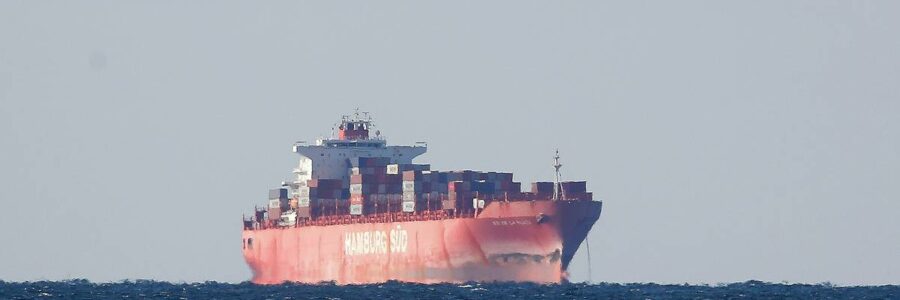
Covid 19 coronavirus: Delta on cargo ship in Tauranga – low-risk or nightmare scenario?
The risk of a major Delta outbreak from the infected crew of a ship docked off Tauranga is being described as low, but many elements remain unclear.
A best-case scenario, according to professor Michael Baker, is that few if any of the 11 crew members who have tested positive are infectious, and the 92 port workers who had contact with the ship – the Rio de la Plata – didn’t catch the virus.
A worst-case scenario is that the workers caught the Delta variant from the crew members on Wednesday night, when the ship docked, and have spent just over four days circulating the virus in their respective communities.
But the chances of that seem “relatively low”, Baker said, given the crew members are not symptomatic – and therefore may not have been infectious – and the port workers appeared to have followed proper protocols including wearing PPE.
The 21 crew members were all tested before they could head to the Port of Napier, and 11 positive results were returned yesterday morning. They all remain on board off the coast of Tauranga.
Prime Minister Jacinda Ardern wouldn’t give an assessment of the level of risk yesterday because there were still many unknowns.
Among them was the sequence of events – including whether the crew were tested before arriving in Tauranga – and whether the workers should have been told to return to work on Thursday after being told to isolate on Wednesday night.
Yesterday Ardern said she is yet to receive an answer to the question of why they went back to work despite a known link to a Delta case; a ship pilot boarded the Rio de la Plata in Queensland in July and tested positive nine days later.
The isolation order on Wednesday night was based on “an abundance of caution”, the Ministry of Health said, after being told about the ship pilot in Queensland.
But by Thursday, the workers returned to work following health advice that the pilot was “extremely unlikely” to have infected the ship’s crew because he wasn’t infectious when he was on board.
Baker said it was possible the ship’s crew had been circulating the virus among themselves for weeks, had infected the pilot in Queensland, and were no longer infectious by the time they reached Tauranga.
“The ship could have sustained chains of transmission, potentially for several weeks, but they could have largely burnt out. There might be very few, if any, infectious people on board,” he said.
“The fact there are no symptoms is positive. People can have cleared the infection and still be testing positive for many weeks, or even months.
“There are quite a few things that are on our side in terms of this not turning into a major outbreak.”
He said it wasn’t necessary for the households of the port workers to isolate unless there was evidence of transmission, though it could be done as a precaution because the threat of a Delta outbreak is so dangerous.
“With Delta, by the time you have the evidence of transmission, it can be too late.”
The Ministry of Health initially said there were 94 port workers who had contact with the ship, but later said it was 92, as two Customs workers were found not have been aboard.
Six additional port workers were identified as potentially at risk and have also been tested. By yesterday afternoon, 23 of the 98 had tested negative.
The case has highlighted the low vaccination rates of border workers, including those at ports. Only nine of the 98 workers are fully vaccinated, two have had one vaccine dose, and the vaccination status of four workers was still being checked.
“Those numbers are too low,” said Covid-19 Response Minister Chris Hipkins, who has expressed concern about port workers in particular for more than two months.
Privately employed border workers must all be vaccinated by September 30 or they will not be legally allowed to work at the border, but some exemptions can be made.
Port representatives have suggested exempting ship pilots, who are not so easily replaced if they are unvaccinated and cannot work as pilots.
Hipkins said no exemptions have been made at this stage and the threshold was “very high”.
The September 30 deadline has been questioned as too lenient, and while Hipkins said it was being kept under constant review, the lead-in time allowed for misinformation and vaccine hesitancy to be tackled.
Source: Read Full Article
/cloudfront-ap-southeast-2.images.arcpublishing.com/nzme/JVOVITCVSKU6AGSOPXOBCYH2AY.jpg)
/cloudfront-ap-southeast-2.images.arcpublishing.com/nzme/A4SEEVEADDRFC7H7WIOSX3RNFE.jpg)
/cloudfront-ap-southeast-2.images.arcpublishing.com/nzme/QOIUAUQYMKRKMTDRJUTQRXCSTI.jpg)
/cloudfront-ap-southeast-2.images.arcpublishing.com/nzme/YQWQJVBWFR4YZCCXQLTXET4R3U.jpg)